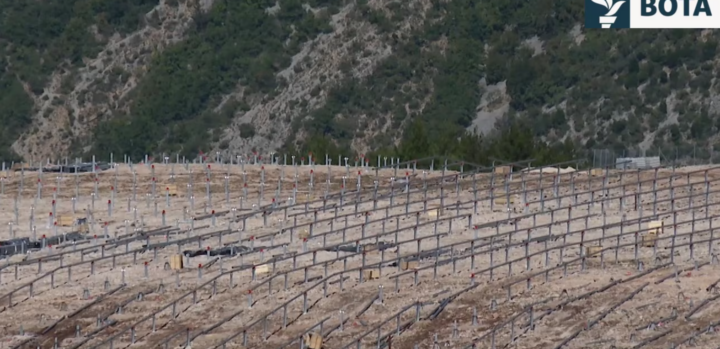A tragic workplace accident this summer at a large solar plant in Bosnia turned into one of the most significant legal challenges for Chinese-backed projects in the region. A 25-year-old Chinese construction worker died at the Aurora Solar site near Stolac, prompting inspections that revealed 71 undocumented Chinese workers in October. Authorities quickly deported the workers, suspended construction on the $116 million project, and opened investigations into potential misuse of public land.
For a region where Chinese infrastructure investments often benefit from political alliances and government patronage, this marked a rare obstacle and a public pushback against China’s economic presence. Experts note that local officials frequently welcome Chinese capital as quick money for energy and infrastructure development, often at the cost of environmental protection and labor law compliance.
Broken Promises and Environmental Concerns
After months of legal disputes and local community pressure, a government inspector halted all new construction at the Stolac solar park. Residents, including Arman Ajanić, had warned that the project’s structures were closer to populated areas than originally presented and could pose environmental and safety risks, including landslides.
“This location is known for landslide risks, sloping toward homes,” Ajanić said, recalling a tragic incident where a neighbor died due to a landslide caused by an earthquake. He added that residents spent hours daily studying relevant laws to mount their legal challenge. “This shouldn’t be the responsibility of ordinary citizens, but of institutions,” he said.
Authorities at the mayor’s office, who led the project’s development, did not respond to requests for comment. Meanwhile, NORINCO, the Chinese contractor, stated that all workers had legal entry permits and that necessary documentation had been submitted.
“Chinese With Free Hands”
The Stolac solar plant is the latest high-profile project in the Balkans constructed or managed by Chinese state-owned enterprises to face resident opposition and legal blockages. Similar conflicts have occurred at other projects, including hydroelectric plants in southern Bosnia, where fish die-offs and environmental damage triggered investigations.
Experts argue that these issues stem from local politicians’ eagerness to attract Chinese investments, often allowing companies to operate without strict oversight. Vuk Vuksanović from the Belgrade Centre for Security Policy said, “All concerns about illegal labor, the environment, and land expropriation exist because elites allow the Chinese to act freely to ensure project completion.”
Mixed Success Across the Region
Across the border in Serbia, Chinese mining investments have faced less successful local opposition. In Bor, a major mining hub, residents have accused the Zijin Mining Group of land grabs, pollution, and disregard for their livelihoods. Legal battles have made little progress, and some residents have lost property and air quality has deteriorated, despite government intervention favoring the company.
China’s Green Pivot
Chinese investments in the Balkans increasingly target renewable energy, including solar and wind projects. Supported by subsidies and large production bases, China has become the world’s largest and most efficient manufacturer of solar panels, wind turbines, and electric vehicles. State-backed projects abroad aim to reshape China’s global image from polluter to green investor, though navigating weak legal systems through local intermediaries can backfire, as in Stolac.
Residents in Stolac, led by Ajanić, are now joining forces with activists nationwide to prepare legal actions against similar projects. “We have formed a national alliance demanding proper management of public lands. Healthy environments and legal procedures have no price,” he said.







